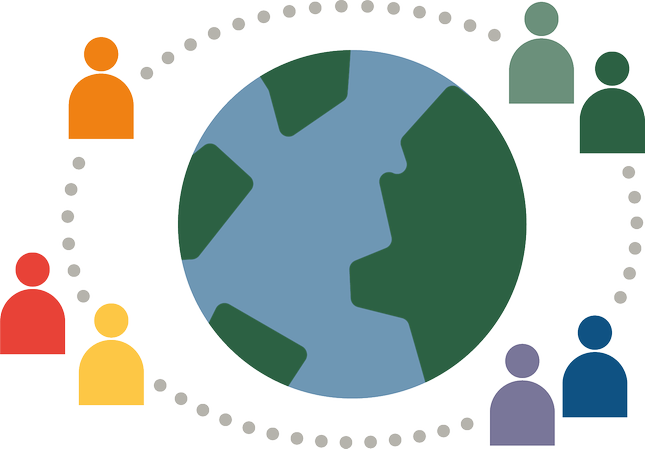
International cooperation
Content:
The Swedish Chemicals Agency participates in several different types of international collaborations concerning chemicals control and legislation on making available and use of chemicals.
Global Challenges
Chemicals are in many ways contributing to a better standard of living, but when they are used in the wrong way they can give serious negative effects on human health and the environment. The global trade with chemicals and articles results in significant spread of chemicals during production, use and disposal as waste. Chemicals are further dispersed across national boundaries with air and water.
Over the last decades the chemicals production has shifted, and the majority of the production is now taking place outside the European Union. It is therefore important to work with chemicals issues both on a regional and global level.
Work concerning common legislation within the EU
To work with chemical issues within the EU is a central task for the Swedish Chemicals Agency, since the chemicals control in Sweden to a large extent is regulated by common EU legislation. The Swedish Chemicals Agency is taking part in the related work within the EU, and is cooperating with the other member states, the EU Commission and relevant EU authorities (such as European Chemicals Agency, ECHA, and the European Food Safety Authority, EFSA).
More information about the EU cooperation can be found under the pages about Rules and regulations
The European Commission, ECHA and EFSA give interested parties the opportunity to comment on new proposals through the so-called consultation procedure.
International conventions and agreements
Sweden is a party to many international conventions and agreements. The Swedish Chemicals Agency gives support to the Swedish Government and participates in the work with e.g. the Rotterdam Convention, the Stockholm Convention and the Minamata Convention. Another important agreement is the new Global Framework on Chemicals (GFC).
Read more about international conventions and agreements
Global, regional and bilateral cooperation
It is important to have control over chemicals being placed on the national market. However, in many countries, the preventive chemicals control is only weakly developed. The long experience and competence regarding chemicals control that Sweden and the Swedish Chemicals Agency have, makes it possible for us to give support and to participate in development cooperation together with other countries and organisations. Our bilateral, regional and global collaborations as part of the development cooperation have as goal to contribute to the development of national preventive chemicals control in low and middle income countries.
The Swedish Chemicals Agency is also contributing with expertise within multilateral institutions and organisations, e.g. Food and Agriculture Organization of the United Nations (FAO) and the UN Environment Programme (UNEP).
The Swedish Chemicals Agency is also cooperating with other countries within a number of organisations. Examples of this are the Nordic cooperation with other Nordic authorities under the Nordic Council of ministers, and the cooperation within OECD.
Read more about our global, regional and bilateral collaborations
Guidance and training for development of national chemicals control in other countries
To support other countries, the Swedish Chemicals Agency has produced guidance documents on various areas that are important for the development of a national chemicals control.
The Swedish Chemicals Agency also provides an international capacity development programme (International Training Programme, ITP) that focuses on how a national chemical control can be developed and organized.
Read more about our guidance material for development of national chemicals control
